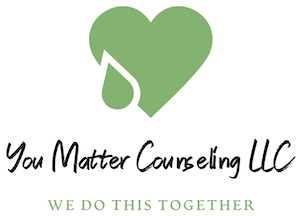 Using and Attachment based approach I will help you identify what your attachment style is and how to overcome the effects of negative early attachment issues by establishing a secure bond between you the client and me the therapist. The construction of a secure, responsive, and open relationship around precisely the issues that are difficult and troublesome for the client is a major part of the therapy. We then move towards helping you communicate more openly and better explore and understand how your current feelings and behaviors are associated with earlier experiences. Addressing the emotions and the communications that you learned to suppress or to overemphasize in early attachment relationships. With attachment-based psychotherapy, you will find new ways of behaving in relationships and new ways of approaching situations. Your internal working model of self and begins to change, becoming more open and adaptive, supporting better intimate relationships and more effective action in the world. You will become better able to communicate openly and accurately and to access more adaptive feelings, thoughts, and behaviors in own life the way you want and deserve.
Using and Attachment based approach I will help you identify what your attachment style is and how to overcome the effects of negative early attachment issues by establishing a secure bond between you the client and me the therapist. The construction of a secure, responsive, and open relationship around precisely the issues that are difficult and troublesome for the client is a major part of the therapy. We then move towards helping you communicate more openly and better explore and understand how your current feelings and behaviors are associated with earlier experiences. Addressing the emotions and the communications that you learned to suppress or to overemphasize in early attachment relationships. With attachment-based psychotherapy, you will find new ways of behaving in relationships and new ways of approaching situations. Your internal working model of self and begins to change, becoming more open and adaptive, supporting better intimate relationships and more effective action in the world. You will become better able to communicate openly and accurately and to access more adaptive feelings, thoughts, and behaviors in own life the way you want and deserve.
Research and Studies
 Research and studies now teach us that attachment injury is healed through healthy safe relationship with others and self. Recent developmental research has revealed that if as a child your vulnerable feelings including anger, distress, sad or confused feelings and were received with a negative response or interaction and elicited shame, devaluation, abuse or with drawl by the caregiver, there can be long term affects on how we see the world and relate to others. If these negative responses continue after a while it becomes adaptive to shut down these affects. Being able to express anger, saddens, confusion or even fear can continue to stay shut down all the way into adult hood, but it can also affect our physical health.
Research and studies now teach us that attachment injury is healed through healthy safe relationship with others and self. Recent developmental research has revealed that if as a child your vulnerable feelings including anger, distress, sad or confused feelings and were received with a negative response or interaction and elicited shame, devaluation, abuse or with drawl by the caregiver, there can be long term affects on how we see the world and relate to others. If these negative responses continue after a while it becomes adaptive to shut down these affects. Being able to express anger, saddens, confusion or even fear can continue to stay shut down all the way into adult hood, but it can also affect our physical health.
Attachment-Based Therapy Developed
 Attachment-based therapy developed from the 1960s work of British psychologist John Bowlby, who first proposed that strong early attachment to at least one primary caregiver is necessary for children to have a sense of security and the supportive foundation they need to freely interact with their environment, to explore, to learn from new experiences, and to connect with others. Without a healthy foundation, babies may grow to be fearful, confused, and insecure, ultimately becoming depressed, difficulty socializing or even suicidal as adolescents.
Attachment-based therapy developed from the 1960s work of British psychologist John Bowlby, who first proposed that strong early attachment to at least one primary caregiver is necessary for children to have a sense of security and the supportive foundation they need to freely interact with their environment, to explore, to learn from new experiences, and to connect with others. Without a healthy foundation, babies may grow to be fearful, confused, and insecure, ultimately becoming depressed, difficulty socializing or even suicidal as adolescents.
Attachment-Focused (AF- EMDR)
Clients who have a history of childhood trauma or relational trauma are prone to an attachment wound. Dr. Laurel Parnell, a psychologist as well as an EMDR Certified Therapist, developed Attachment-Focused EMDR (AF-EMDR) with an emphasis on the importance of the therapist-client relationship, to help heal those attachment wounds, incorporating Resource Tapping to strengthen clients and repair developmental deficits while using EMDR bi-lateral stimulation to process traumas. Using this technique I will help you integrate the information from a session and work to provide healing derived from the therapist-client interaction.
(The above description is provided by www.CDC.org)
Lets schedule a time to chat, see if we are a good fit and how I can help. Contact me for a FREE 15 min phone consultation!

